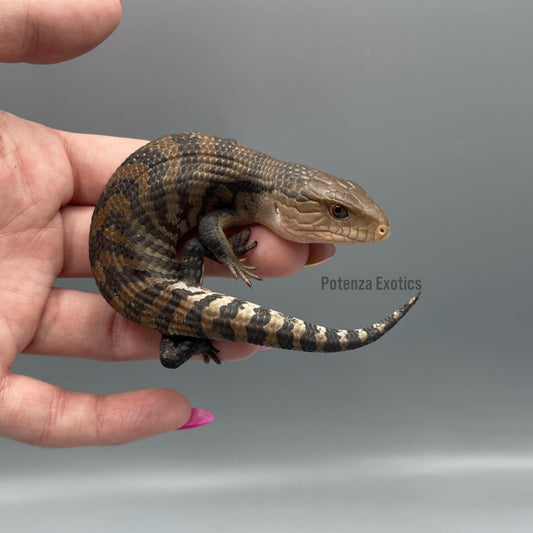If you're considering getting a hedgehog as a pet you're probably wondering about their typical lifespan. You might be surprised to learn there are actually 17 different known specifies of hedgehog in world today.
We'll be specifically discussing the lifespan of the African Pygmy Hedgehog since it is the most commonly owned domesticated hedgehog.
How Long Do Hedgehogs Live?
Wild hedgehogs and pet hedgehogs have greatly different lifespans due to predators, diseases, and potential injuries. Wild hedgehogs typically live only 2-3 on average, while their domesticated counterparts are known to live much longer.
Pet hedgehogs have a typical lifespan between 4-5 years and have been known to live as long as 8-10 years.
For us personally, our oldest hedgehog lived to be just over 7 years old, but this is not a common occurrence. Unfortunately, hedgehogs just don't live very long lives.
However, there are a few things to know that can greatly influence the lifespan of the typical African Pygmy Hedgehog.

Factors Affecting a Hedgehogs Lifespan
There are a number of different things that will influence the lifespan of your hedgehog. Some of these are outside of your control, while others are relatively easy changes that can have a huge impact on their long term health and wellbeing.
Diet and Nutrition
It probably goes without saying, but the quality of your hedgehogs diet can have a dramatic impact on their lifespan.
You'll want to ensure you only provide high quality foods that provide the necessary levels of proteins, fats, and fiber. As well as ensuring they get adequate levels of phosphorus and calcium for bone development.
Improper diet can lead to a number of different health issues including:
- Fatty liver disease
- Metabolic bone disease
- Gastrointestinal disease
- Obesity
- Overall weakened immune system
There's no "perfect" diet for your hedgehog, but you'll generally want to stick to a staple diet of high quality cat kibble supplemented with gut loaded insects. This will provide your hedgehog with all the necessary nutrients they need to live a long healthy life.
Safe Environment
Keeping your hedgehogs environment free of potential hazards is controllable step in extending their lifespan.
That means keeping other animals and predators away from your hedgehogs enclosure at all times. Don't let your other pets like cats and dogs have access to their cage or leave open access to them.
Provide a stable temperature between 75°F and 85°F and ideally between 78°F-82°F if possible. Temperatures below the minimum could induce a hibernation response which can be lethal to domesticated hedgehogs.
It will also be important to avoid any hazards that could cause your hedgehog injury. That could include unsafe hedgehog wheels that can pull out nails and damage feet. Sharp objects that your hedgehogs could accidently impale themselves on.
It will also include choosing a proper cage that only has a single level and no ramps. Hedgehogs have incredibly poor eyesight and are likely to walk right off the side of a multi level cage, potentially breaking bones or causing internal injuries.
The best thing you can do is remove any potential hazards from their environment and follow the tips from our hedgehog care guide.
Genetics
Just like any animal, genetics has a major role to play in the lifespan of your hedgehog. Although not entirely controllable, many diseases and health conditions can be avoided by properly tracking pedigrees and selective breeding.
Choosing to purchase from a responsible breeder that tracks this information thoroughly and uses pedigrees to prevent inbreeding will set a strong foundation for the long term health of your hedgehog. Find a breeder that tracks this information and avoid purchasing from back yard breeders or chain pet stores.
Neglecting to do this can lead to a number of different health conditions or diseases later down the line.
It's still not a guarantee for perfect health and long life, but its an important starting point. Most reputable breeders will also offer life time support and will be able to answer any potential questions and advise on best solutions.
I'd still recommend you see a vet if you notice health issues, but your breeder can be a huge help.

Breeding
Breeding will naturally introduce risks to your hedgehog that can lead to various health issues or even death. Unless you're being mentored by a licensed breeder, I would recommend you completely avoid attempting to breed your hedgehog.
Like any pregnancy, complications can arise and unless quickly treated can lead to death. There is also the risk of the two hedgehogs injuring one another during the breeding process, so again, avoid breeding your hedgehog unless properly mentored.
Exercise
Hedgehogs are surprising active at night and need plenty of exercise to stay happy and healthy. Providing them an avenue for this energy will not only help them stay physically healthy, but also mentally.
This can be easily accomplished by providing your hedgehog a safe exercise wheel to run on during the night. It's not uncommon for them to run up to several miles on their wheel each night. This will benefit their cardiovascular health and prevent obesity.
You can also provide toys for them to engage with. We find most cat toys or even ping pong balls to be their favorite.
Finally, you could also provide a safe area for them to roam and explore outside of their enclosure. We have a special enclosed room specifically for this purpose, but you're welcome to use something as simple as a play pen with toys for them to navigate through or investigate.
I would completely avoid bringing your hedgehog outdoors or letting them roam through your backyard. This could introduce them to mites, ticks, or diseases they wouldn't normally have been exposed to.
Disease and Illness
This is one aspect that you may have very little control over. Many potentially diseases could be prevented by buying a hedgehog with good genetics, or maintain a proper diet.
But sometimes there is no avoiding it.
You can keep the possibility of disease as low as possible by following all the steps we mentioned before. Feeding your hedgehog a proper diet, providing them with plenty of exercise, removing hazards from their environment and purchasing only from reputable breeders.
Nothing is perfect, but if you adhere to this list you give your hedgehog the best chance of living a long and healthy life.
Conclusion
There are so many different factors that can affect the long term health and wellbeing of your hedgehog. This will naturally impact the length of their lives and you'll want to keep this in mind to ensure they live their best lives.
Some of this is out of your control, but it begins by only purchasing from reputable breeders that track their pedigrees. Within the hobby there is far too much inbreeding which leads to a number of long term health issues and potential diseases.
You'll also want to stick to high quality food, provide a means for exercise and consult a veterinarian anytime you notice issues.
View our available hedgehogs here.




